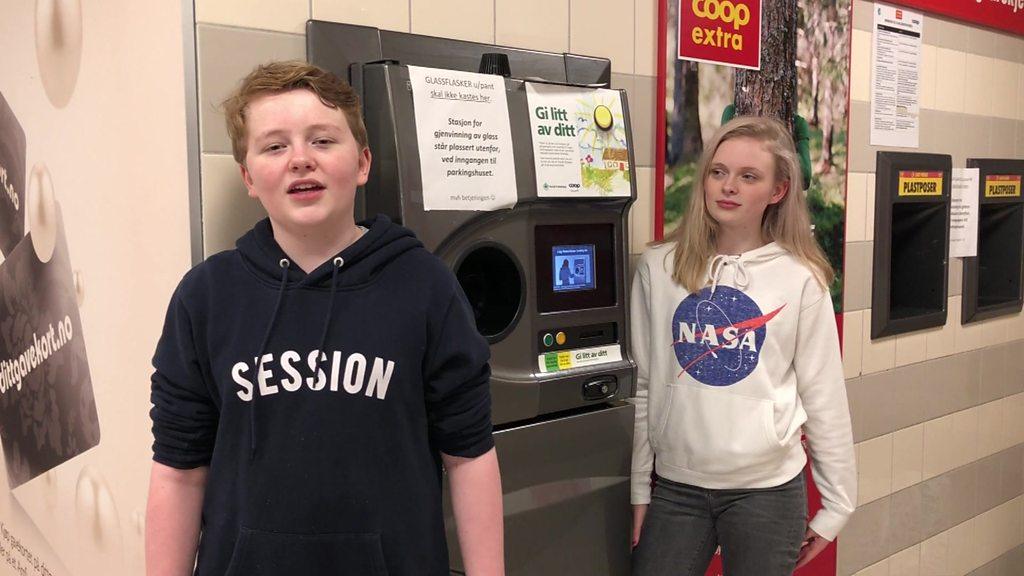Recycling: Supermarkets not doing enough says research
- Published
- comments
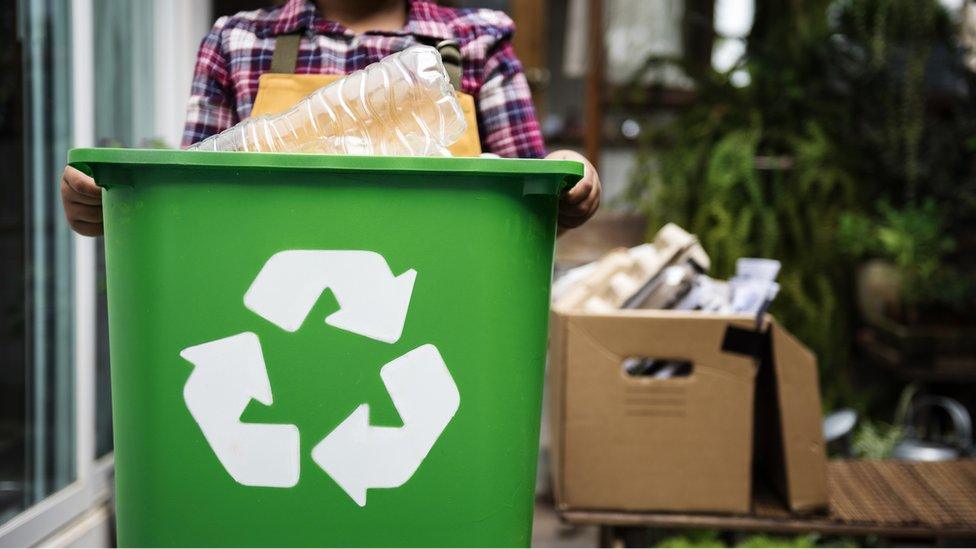
Almost half of packaging used by supermarkets cannot be recycled, an investigation has found.
Which? - a company which studies and tests the things we buy - looked at the packaging of 46 of the most popular items from 11 supermarkets.
The average percentage of packaging - including cardboard, glass and plastics - that could be easily put in household recycling bins was just 52 per cent.
42 per cent of the total supermarket packaging was labelled either incorrectly or not at all.
This made it difficult for people to decide whether to recycle or throw in the bin.
The supermarkets investigated were Aldi, Asda, Co-op, Iceland, Lidl, M&S, Morrisons, Ocado, Sainsbury's, Tesco and Waitrose.
According to Which?, Morrisons had the worst figure for recycling - 61 per cent of their packaging was not easily recyclable.
Over half (58%) of the packaging materials used by Co-op were also not widely recyclable.
WATCH: What YOU are doing to save the planet
Examples included an orange juice carton which was made of a combination of materials - seven out of the 11 supermarkets used clear plastic bottles, which are easier to recycle.
According to the report, the best supermarkets for recyclable packaging were Tesco and Waitrose - only 40% of their packaging could not be easily recycled.
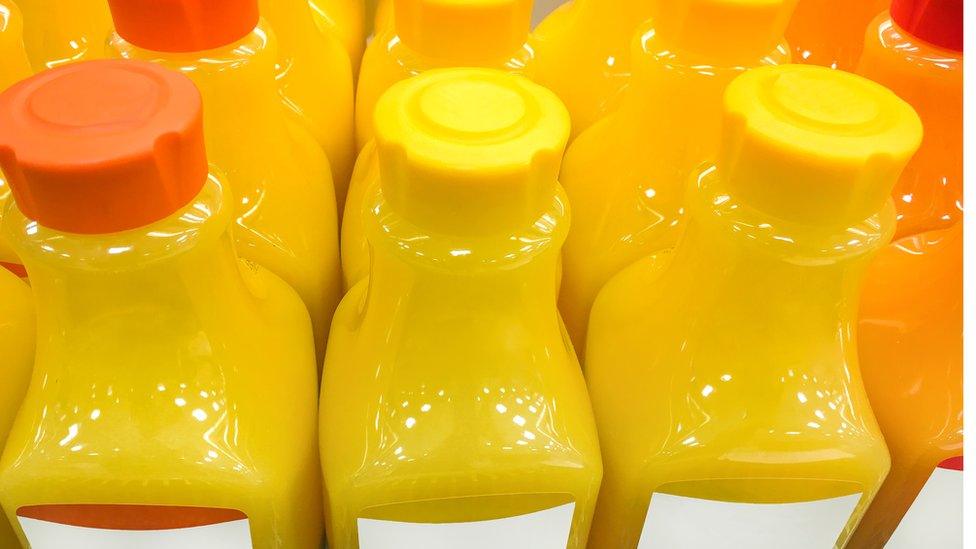
Bottles are often easier to recycle than cartons
Lots of companies, including supermarkets and restaurants, have promised to try and cut down on plastic waste.
Back in April, 40 companies - including Aldi, Asda, Lidl, M&S, Morrisons, Ocado, Sainsbury's, Tesco and Waitrose - all signed up to the UK's Plastic Pact.
This is an agreement to make 100% of plastic packaging ready for recycling or composting by 2025.
Supermarkets often say that packaging decisions are not always straight forward.
Organic waste, including leftover food, has a bigger carbon footprint than plastic and, according to food retailers, plastic plays an important role in preventing food waste.
Why is recycling so important?
WATCH: Martin finds out why people want to ban plastic
Recycling is important because waste has a huge negative impact on the environment. When rubbish is chucked into a general bin it is taken to landfill. Harmful chemicals and greenhouse gasses are released from the rubbish in landfill sites.
Recycling helps to reduce the pollution caused by waste.
Plastic recycling is especially important because plastic takes centuries to break down in landfill or in the ocean where it can be very damaging to marine animals, birds and fish.
- Published11 June 2019
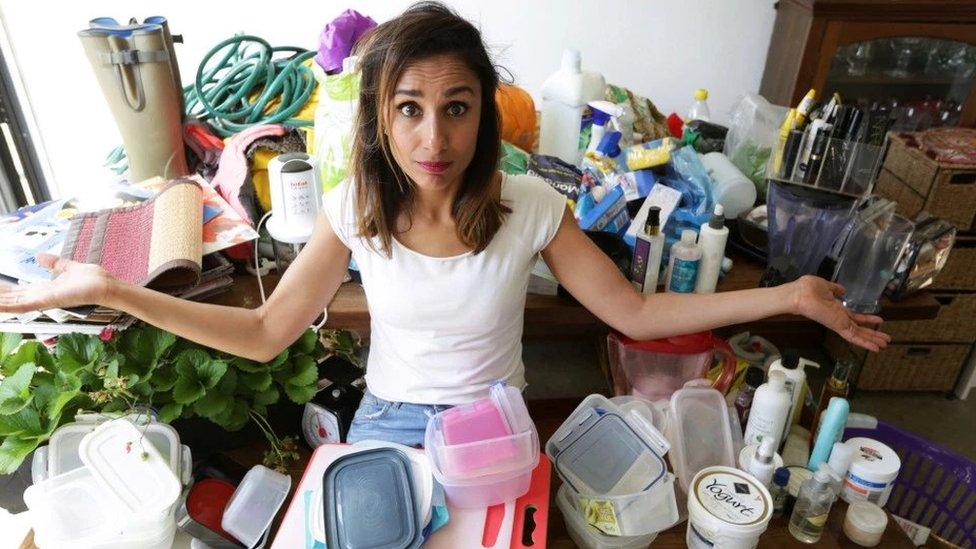
- Published10 May 2019
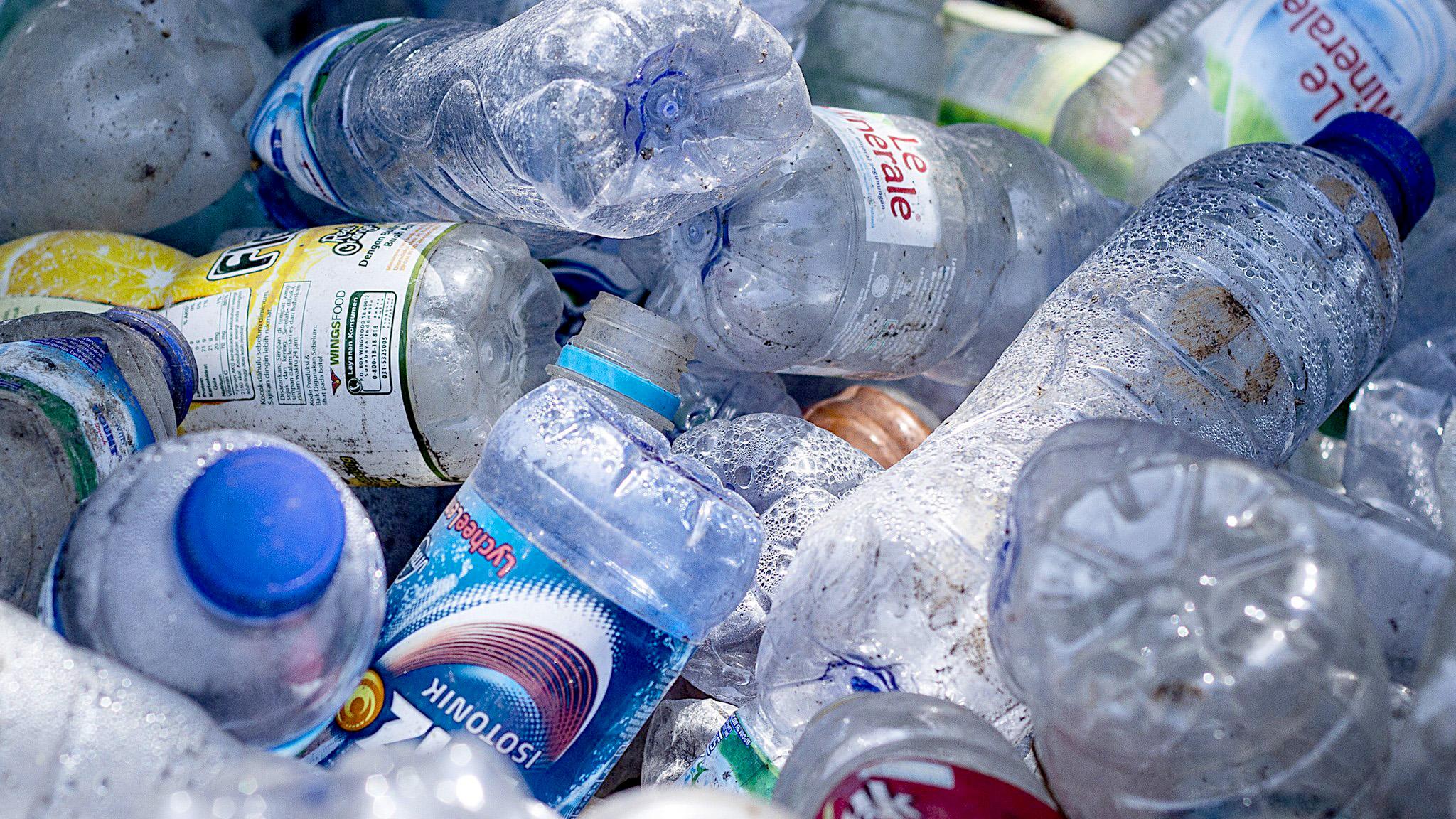
- Published18 January 2019
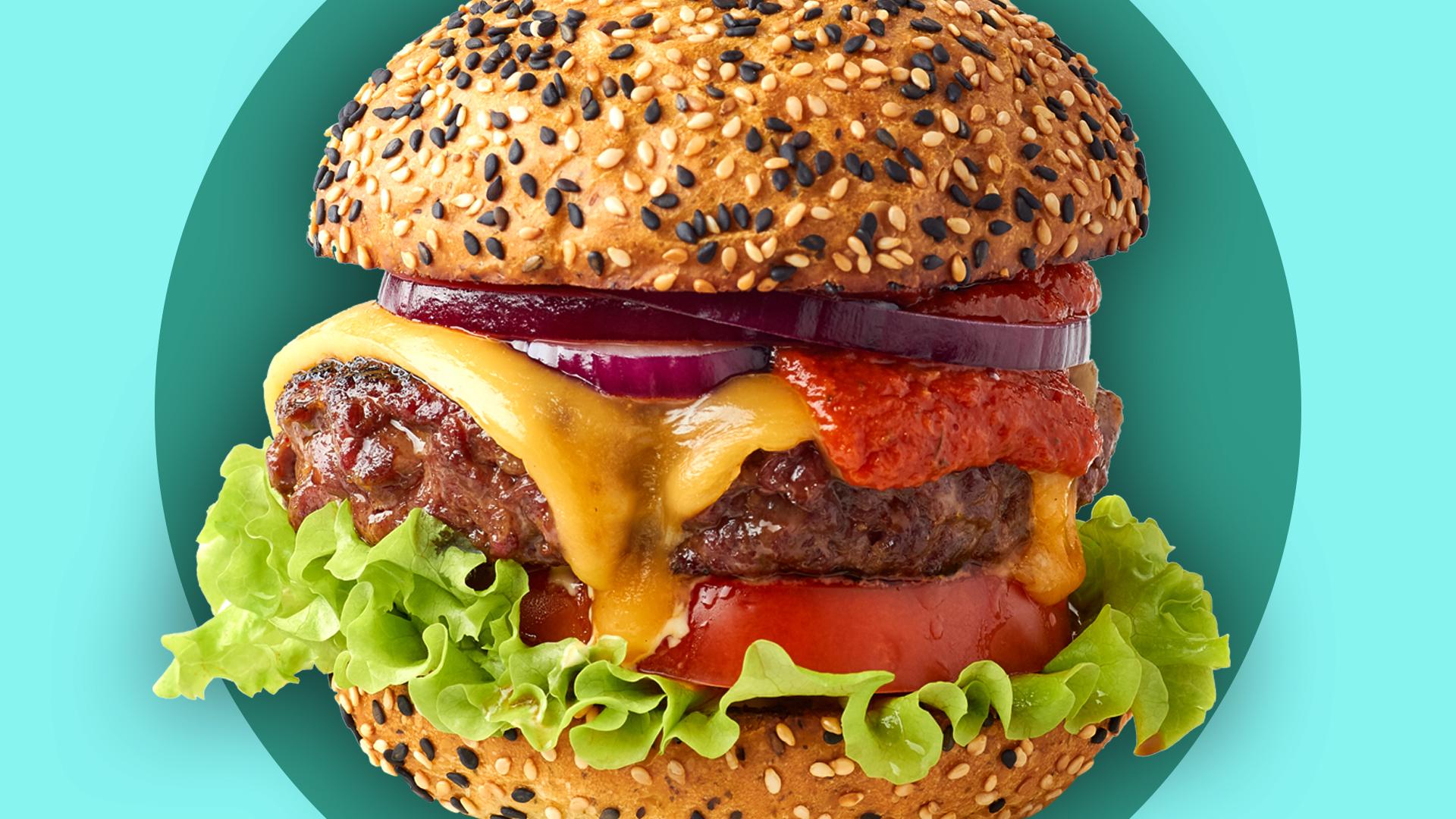
- Published18 February 2019
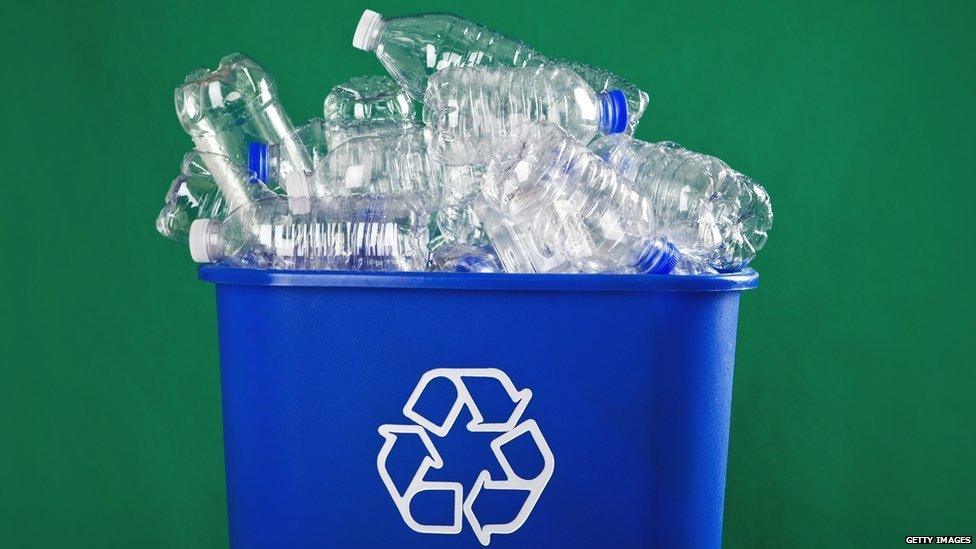
- Published4 March 2019
